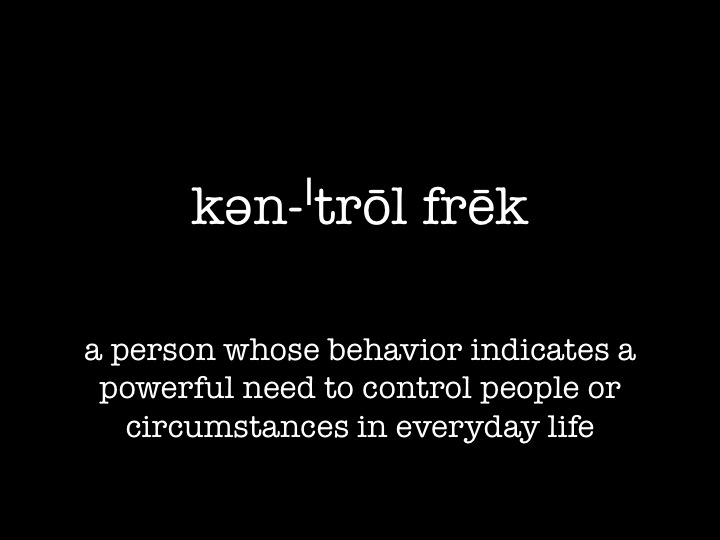Sign up for my FREE parent tips email and get my FREE Ebook on college financing! Or subscribe to my blog on the left and get email updates.
Wednesday’s child may be full of woe but Wednesday’s Parent can substitute action for anxiety. Each Wednesday Wendy and I will provide parent tips to get and keep your student on the college track. It’s never too late or too early to start!
Wednesday’s Parent will give twice the info and double the blog posts on critical parenting issues by clicking on the link at the end of the article from pocsmom.com to parentingforcollege and vice versa.
_______________________________
 Kids, especially teens, know exactly how to push your buttons. It might be back talk, or constant complaining or eye-rolling, but whatever the behavior, nearly every parent will experience the tactic of pushing buttons.
Kids, especially teens, know exactly how to push your buttons. It might be back talk, or constant complaining or eye-rolling, but whatever the behavior, nearly every parent will experience the tactic of pushing buttons.
Instead of giving my own advice on this topic, I’ve taken from two sources that should help you see both sides of the coin and perhaps help you deal with this inevitable conflict.
Top 10 Teenager Button Pushing Tactics (from AlternativetoCounseling.com)
1. “You never let me do anything.”
This statement invites the parents to point out specific times that they have let the teenager do what he or she wanted. This forces the parent off the real issue at that moment and gives the adolescent the upper hand in the discussion.
2. “You don’t love me.”
This statement is intended to induce guilt and make the parents question their self-worth. Unfortunately, many parents take this bait instead of recognizing that asking the adolescent to do something they do not like had nothing to do with love.
3. “I hate you” or “You’re a liar/bad parent”.
These statements are meant to get the parents to lose their tempers through personal character attacks. This clouds the parents’ thought process and limits their ability to effectively enforce consequences.
4. “You’re not my real mother/father. I don’t have to listen to you.”
This statement really unnerves stepparents but rarely is about the parent not being a biological one. It is merely another tactic designed to get the parent flustered and angry so that the real issue is not addressed..
5. A disgusted look, improper gesture or whiny voice.
Body language, gestures and tone of voice are some of the most powerful tools an adolescent may use to play with someone’s emotions. Unfortunately, if the parents respond to these barbs by losing control of their emotion, it gives the adolescent a great deal of power as he or she now knows how to get under his parent’s skins.
6. Finding you most vulnerable area and preying on it.
Adolescents have an uncanny ability to find the areas that bug each parent the most and apply pressure to that area. For example, some adolescents will intentionally keep their room messy because of their mothers’ emphasis on cleanliness. Again, this behavior is not a personal attack but just clever way of throwing the parent off balance.
7. “I’m gonna kill/hurt you/myself/others.”
These statements are meant to scare the parents so that they will back off and remove pressure from the adolescent. Teenagers usually use threats of violence as a last resort when nothing else had worked.
8. “I’m gonna lie, lie, lie.”
Lying is a pet peeve of most parents and one the teenager knows will get them to emotionally lose control so that he can win, win, win. Parents do not like lying and will often lose control of their emotions quickly when they catch the teenager in a lie.
9. “I hate school.”
Most parents value education so this statement invites a lecture on how the teenager is throwing away his future. Teenagers normally cannot see past tomorrow so they do not see failing school as a problem in the immediate future. However, they do know that education is important to the parent and how to use it to their advantage.
10. “I’m going to leave/run away.”
This statement gets parents to back off from exerting their authority because they fear what might happen if the adolescent runs away and is living on the streets. Adolescents know this and use this statement as an effective tool to paralyze their parents from taking action or enforcing a rule or consequence.
7 Ways parents push adolescents’ buttons (from BridgeYouth.org)
1. Preaching or Using Clichés
It is easy to want to use your own experiences as examples when talking to your kids. However, this will cause them to shut down. Phrases such as, “when I was your age” or “if all your friends jumped off a cliff…” should be avoided.
2. Talking in Chapters
Try to keep your responses to your child brief. If they ask if they should do something, reply with ‘yes’. If you follow up with more statements, they may become angry or tune you out.
3. Labeling
Saying that your adolescent “always” does something can be dangerous. If you say your child is always late, it becomes a self-fulfilling prophecy.
4. Futurizing
“Futurizing” is when you talk about your adolescent’s future in a negative context. Examples include, “you’ll never go to college” or “you won’t be able to get a job with that attitude”.
5. Instant Problem Solving
Adolescents do not want you to solve their problems! Although it is natural to want to help out your teenager. Often times they just want you to listen and understand.
6. Questioning the Teenager’s Restlessness and Discontent
Parents make the situation worse when they ask their teen unanswerable questions such as, “What is the matter with you?” or “What’s gotten into you?”. Teenagers are often restless and unhappy for no reason at all-it’s part of being a teenager. Try to accept the behavior in a supporting way unless it extends over a long period of time.
7. Not Tolerating Experimental Behavior
Tolerating behavior and accepting behavior are two totally different things. As your teen struggles to find their identity, they may experiment with various hairstyles and clothing. Express your disapproval once and then let it drop. If you continue to express your unhappiness, a power struggle may develop leading them to rebel even further. Save your energy for the bigger battles.
8. Collecting Criticism
Even though it may seem like your child does not care about your opinion, they do. Parents’ insults and criticism cut deeper and might take years to heal. Avoid rehashing past events or keeping a “mental scorecard” on past behavior problems. Focus of what is occurring in the present.
Admit it, you’ve either experienced those manipulative teen tactics, or you’ve dished out some of your own. Recognizing them should help with future button pushing. Or at the very least, you won’t feel like you’re the only one!
 I tell so many people I work best under pressure. It’s not an excuse; it’s a fact. As you can imagine though, it’s stressful. Chasing deadlines may work when you’re self-employed, but it’s not a habit you want your college-bound teen to adopt. Every teen, unfortunately, procrastinates. It’s a part of their nature; and the college prep process on top of other life activities lends itself to procrastination.
I tell so many people I work best under pressure. It’s not an excuse; it’s a fact. As you can imagine though, it’s stressful. Chasing deadlines may work when you’re self-employed, but it’s not a habit you want your college-bound teen to adopt. Every teen, unfortunately, procrastinates. It’s a part of their nature; and the college prep process on top of other life activities lends itself to procrastination.








